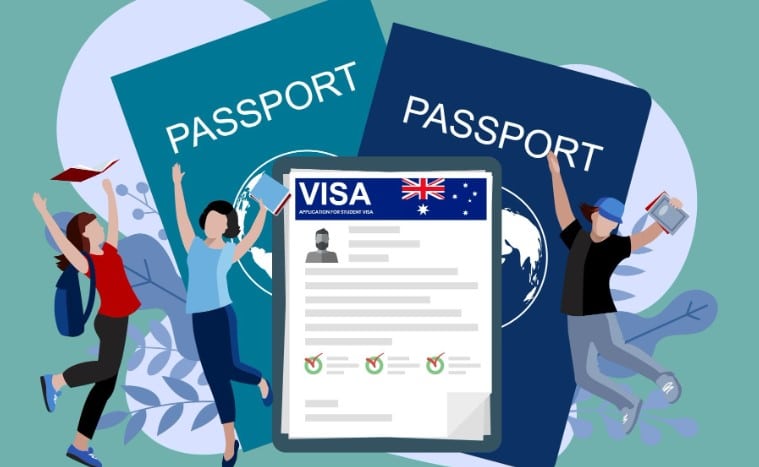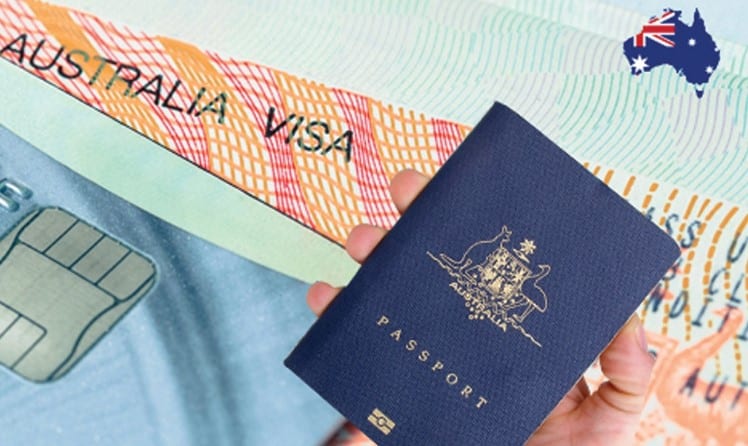Obtaining a student visa is a crucial step for international students planning to study abroad. This comprehensive Home.globetraveo.com provides detailed information on the application process, requirements, and benefits of student visas.
Whether you’re aiming to study in the USA, Canada, the UK, or another country, this guide will help you understand everything you need to know about securing a student visa.
You can also read : Visa Application Guide: Everything You Need to Know for 2024
Understanding Student Visas

What is a Student Visa?
A student visa is a type of visa specifically designed for individuals who wish to study in a foreign country. It allows students to reside in the host country for the duration of their academic program.
- Purpose: The primary purpose of a student visas is to enable individuals to pursue educational opportunities abroad. It does not allow for permanent residence or employment beyond limited conditions.
- Types: Student visas can vary depending on the country and type of study program. Common types include short-term and long-term student visas.
A student visa is essential for international students seeking to enroll in academic programs, language courses, or vocational training in another country.
It typically requires proof of acceptance from an accredited educational institution and may involve showing financial stability to cover tuition and living expenses.
Student Visa Requirements
To apply for a student visas, you must meet specific requirements set by the destination country. Common requirements include:
- Valid Passport: Your passport should be valid for the entire duration of your stay.
- Application Form: Complete the student visas application form accurately.
- Acceptance Letter: Provide an acceptance letter from an accredited educational institution in the host country.
- Proof of Financial Support: Evidence of sufficient funds to cover tuition fees and living expenses, such as bank statements or scholarship letters.
- Health Insurance: Some countries require proof of health insurance coverage during your stay.
- Proof of English Proficiency: Depending on the country and program, you may need to demonstrate proficiency in English or another language.
You can also read : Work Visa: Application Process, Requirements & Best Practices
Benefits of a Student Visa
Access to Quality Education
A student visa allows you to enroll in educational institutions that offer high-quality academic programs, research opportunities, and specialized courses not available in your home country.
A student visa provides access to high-quality education by allowing you to enroll in prestigious institutions that offer advanced academic programs, research opportunities, and specialized courses not readily available in your home country.
This opportunity enables you to gain a competitive edge in your field of study, experience diverse learning environments, and interact with a global community of scholars.
With a student visa, you can broaden your educational horizons and enhance your future career prospects through world-class education.
Cultural and Personal Growth
Studying abroad provides a unique opportunity to immerse yourself in a new culture, learn from diverse perspectives, and develop global competencies. It also fosters personal growth and independence.
Studying abroad offers invaluable opportunities for cultural and personal growth, allowing students to immerse themselves in a new culture, gain insights from diverse perspectives, and build global competencies.
This experience promotes independence, resilience, and adaptability, all of which contribute to personal growth and broadened horizons.
By stepping out of their comfort zone, students return home with enhanced skills and a deeper understanding of the world.
Post-Graduation Opportunities
Many countries offer post-graduation work permits or opportunities for students to stay and work after completing their studies, which can enhance your career prospects and provide additional international experience.
Post-graduation opportunities in many countries allow international students to stay and work after completing their studies, offering a valuable chance to gain international work experience and enhance career prospects.
Programs like post-graduation work permits (PGWP) in Canada, Optional Practical Training (OPT) in the U.S., and various other visas in countries such as Australia and the UK enable graduates to apply their skills in the job market.
You can also read : Visa Requirements: Information for US, Canada, UK, Schengen
Real-World Examples

Student Visa for the USA
The F-1 student visa is designed for individuals who wish to study at an accredited institution in the United States.
- Use Case: Ideal for students pursuing academic degrees, language programs, or vocational training in the US.
- Pros: Allows for part-time work on-campus and optional practical training (OPT) for up to 12 months after graduation.
- Cons: Requires extensive documentation, including proof of financial support and an interview at the US Embassy.
- Price: Approximately $160.
- Website: US Student Visa Application
Student Visa for Canada
The Canadian study permit allows international students to study in Canada at designated learning institutions.
- Use Case: Suitable for students attending universities, colleges, or other educational institutions in Canada.
- Pros: Offers the opportunity to work part-time during studies and full-time during breaks. Eligible for post-graduation work permits.
- Cons: Requires proof of financial stability and medical exams for certain applicants.
- Price: Approximately $150 CAD.
- Website: Canadian Study Permit Application
Student Visa for the UK
The Tier 4 student visa (now part of the Student visa) allows international students to study in the UK.
- Use Case: Ideal for students enrolling in full-time programs at UK educational institutions.
- Pros: Allows for part-time work and dependents to accompany the student if certain conditions are met.
- Cons: Requires proof of sufficient funds and English language proficiency.
- Price: Approximately £348.
- Website: UK Student Visa Application
Student Visa for Australia
The Australian Student Visas (subclass 500) permits international students to study full-time in Australia.
- Use Case: Suitable for students enrolling in courses at Australian universities, colleges, or vocational training institutions.
- Pros: Allows work rights during studies and provides opportunities for post-graduation work visas.
- Cons: Requires health and character checks and proof of financial capacity.
- Price: Approximately AUD 650.
- Website: Australian Student Visa Application
You can also read : Immigration Visa: Requirements & Application Process
How to Apply for a Student Visa

Step-by-Step Application Process
- Determine Visas Type: Identify the appropriate student visas type based on your study destination and program.
- Gather Required Documents: Collect all necessary documents, including passport, acceptance letter, financial proof, and health insurance.
- Complete the Application Form: Fill out the student visas application form accurately and thoroughly.
- Schedule an Appointment: Book an appointment for an interview or biometric submission if required.
- Attend the Interview: Be prepared to discuss your study plans, financial status, and background.
- Pay the Visa Fee: Submit the visa fee as specified by the destination country. Keep a receipt for future reference.
- Track Your Application: Monitor your application status online or contact the embassy or consulate for updates.
Where to Buy and How Much
Student visa services are available through official government websites or authorized visa application centers. Prices vary depending on the country and type of visa.
For instance, student visas fees generally range from $150 to $650.
You can also read : Business Visa: Requirements, Application, and More
FAQs
1. What is the processing time for a student visas? Processing times vary by country and visa type. Generally, it takes between 4 to 12 weeks. It is advisable to apply as early as possible to avoid delays.
2. Can I work while holding a student visas? Yes, many countries allow students to work part-time during their studies and full-time during breaks. Specific work rights vary by country and visa type.
3. What should I do if my student visa application is denied? If your student visas application is denied, review the reasons provided by the immigration authorities and address any issues. You may have the option to appeal the decision or reapply with additional documentation.
By following this guide, you’ll be equipped with the knowledge to navigate the student visa application process and ensure a successful application for your studies abroad.
You can also read : Tourist Visa: Requirements, Application, and More
